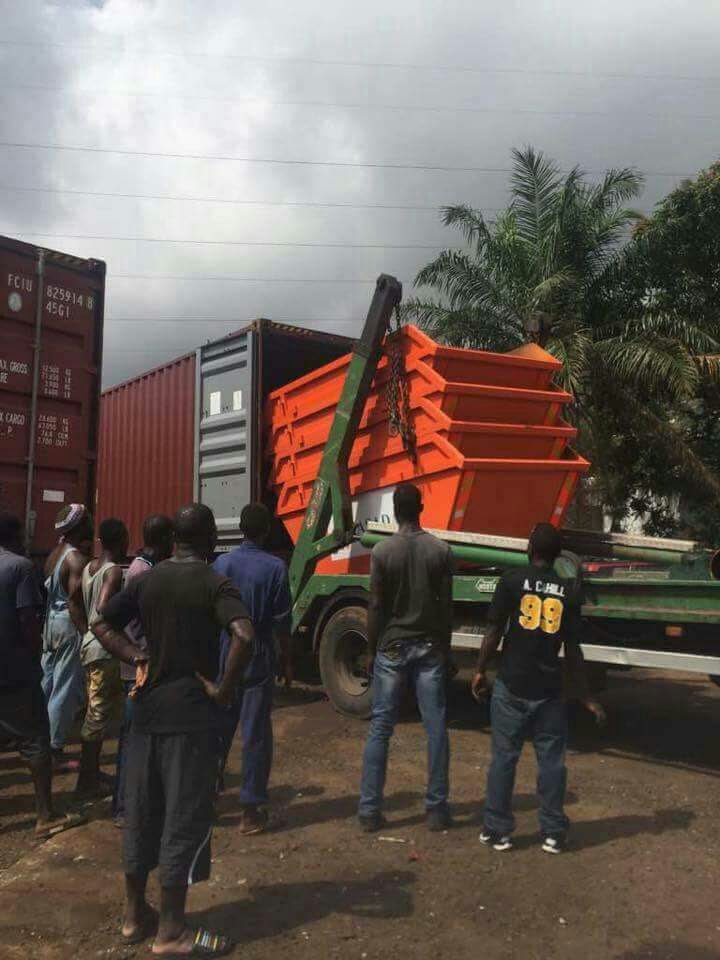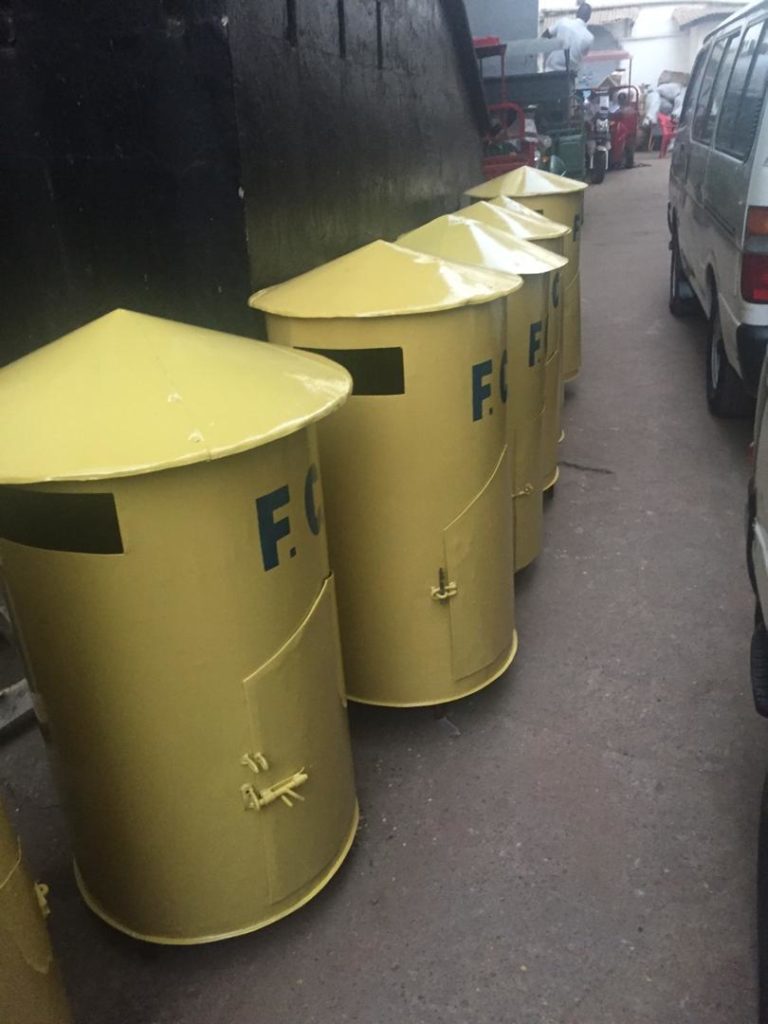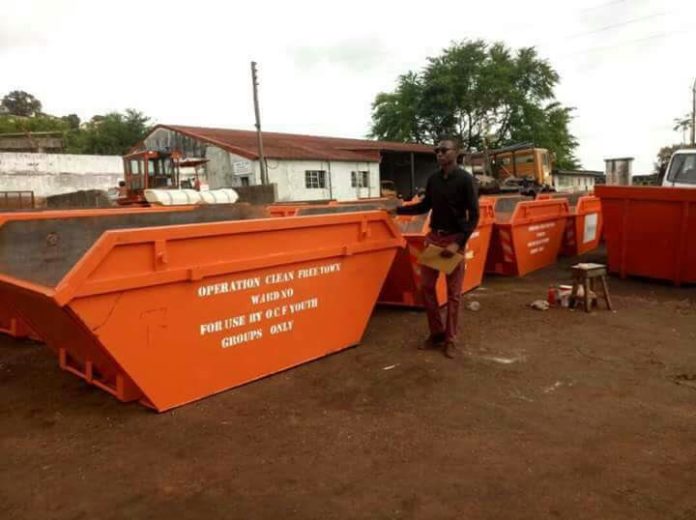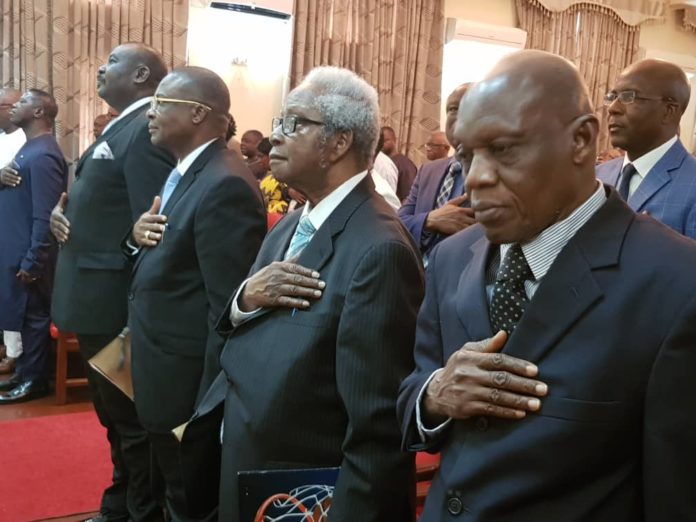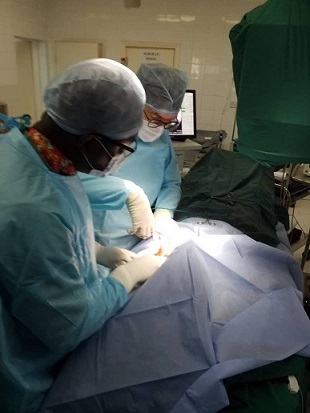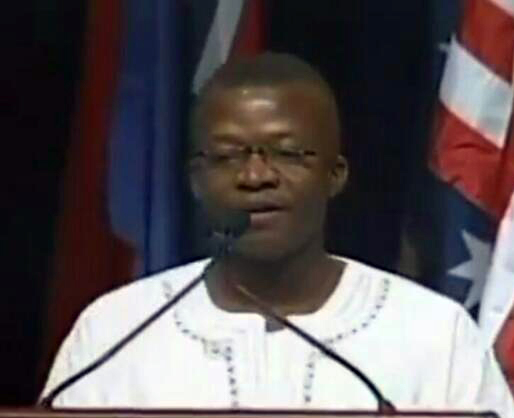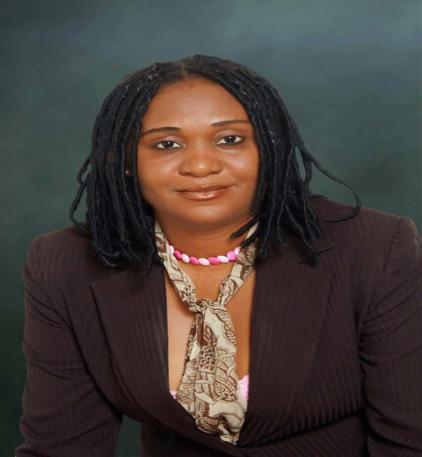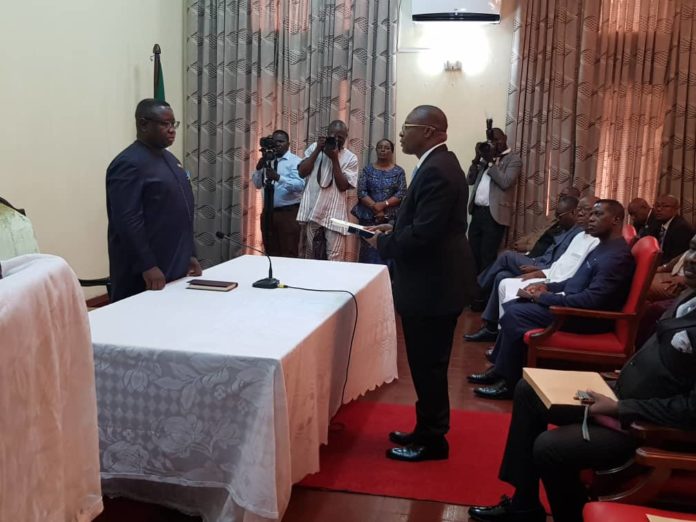(Excerpts from Chapter 8 [Mabanta Evangelisation: The Church Versus The Poro Society] of my book, POPE FRANCIS, POLITICS AND THE MABANTA BOY, to be released on 28th April 2019 by Troubadour Publishers of the United Kingdom. I’ve decided to sneak-peek these excerpts mainly to try to put the current hullabaloo around the society into context… You’ll get more when you buy the book…)
I am yet to find a secret society as dreaded and dreadful as the Poro. A society some of whose members do not only boast of mystical powers but publicly display such with self-inflicted injuries done with glee in pools of blood, and yet the ‘victims’ would the next moment look as normal as before, must be out of this world.
To the outsider – as well as to the insider – Poro is truly frightening. It is ‘a game of brutality’ (‘angwol anghai ghai’), but it could also possibly be the best social club in the community – one reason why it still attracts new initiates, dry season after dry season.
If there had ever existed a secret society, this was it. This is a secret society whose secrets are even not known by the vast majority of its members. You cannot be a member for ten years and think you’ve actually been a member. You have really not known anything. This is a society that has layers of secrets. As an initiate, all you are required to do is to do as others do: if they go to the right, you go to the right; when they go to the left, you go to the left; forward, forward; backward, backward; they turn round, you turn round. Much like the famous saying of ‘when in Rome do as the Romans do’, when in the Poro you do as Poro men (popularly known as ‘sokos’) do. If they dance with one foot, you dance with one foot. If you miss the step, then you’ll know about ‘angwol anghai ghai’ because there is no sentiment or sympathy for even a blood relative – the punishment could be blood-chilling, with the most common form being a rigorous tying of the whole body of any law-breaker irrespective of rank or status.
Poro was a paternalistic secret society to which every mature male was expected or mandated to become a member – except if he belonged to a ruling house and therefore had the discretion of choice; because, according to custom, the Paramount Chief must not be a member of the Poro society (a shadowy, if unconnected, reflection of the Western democratic principle of ‘separation of powers’). The Poro bush was the graduation centre into adulthood, into manhood. It was the highway through which you would enter into society proper and be regarded as part and parcel of the community as a male member. Membership was generally by consent but forced initiation or ‘kidnapping’ was also very much used on the flimsiest of justifications like ‘looking too much.’
And the latter method was used on me…
In pre-colonial times, Poro was also the military wing of the community, being instrumental and forthright in taking part in the continual inter-tribal wars either for territory or for power maximisation or to capture slaves. But the incorporation of the magical or mythical or mystical aspects with the superstitious and presumptive pervading belief in the influence of the ‘spirits of the ancestors’ to the point of gaining notoriety for having extraordinary powers to cause harm, makes the society more mysterious and actually abhorrent.
It is, however, worth noting that it is not an exclusive secret society to Sierra Leone. It is practised in virtually the whole of West Africa. Apart from the Mende and Temne of Sierra Leone, the society is also prevalent among the Senufo people found in northern Ivory Coast, southeastern Mali, northwestern Ghana, and western Burkina Faso; the Kpelle people of Liberia, Ivory Coast and Guinea; and the Vai people of Liberia and Sierra Leone. These tribes are, therefore, believed to have had a common source or ancestry!
Nonetheless, if you are ever looking for a people somehow hypocritical about their nativity and culture, check Sierra Leoneans – as far as the Poro issue is concerned. Many male elites were and still are members of this secret society; but, of course, due to the British abhorrence of its practices (not least because it was the Poro society that was used to fight against the early settlement of freed slaves and the hut tax war), it was not incorporated as part of the national cultural practices of Freetown. And ever since, Poro has never been part of the cultural groups at official ceremonial activities in Sierra Leone – if anything, they would at times gate-crash as self-invitees at ceremonies; and would be quickly hushed away with monetary ablution by officials. When foreign dignitaries visit, all they see are cultural practices of smaller ethnic groups. But the main cultural practice of males of the two main tribes (Temne and Mende) is not on display. The Poro is the missing link in the Sierra Leonean cultural story because native Sierra Leone can’t be really native Sierra Leone without it.
The Sierra Leonean nativity is ashamed of itself – somehow rightfully so. Sierra Leone is ashamed or afraid of showing to the world what Sierra Leonean males practise most. They like it. But they hide it. Yet it has very attractive sides arguably worth displaying for the world to behold – if only as a social event.
When you witness the symmetrical rallying display of the ‘rakas’ (a coterie of specially chosen young men, artfully decorated with carefully dotted white spots on their semi-naked bodies and dressed only to cover their private parts with veils on their heads flowing down their necks, each holding a similarly artfully dotted sword, chanting along snivel with shrink and shriek voices followed by a similarly melodious chorus from the following crowd of members, with running paces matching their whimpering), then you start to think that whosoever devised the idea must have been very artistically knowledgeable. It is not hard to tell that this was the military wing of the tribe.
Women stand in awe, in admiration – clapping hands in some form of adoration or idolisation, as they would have been taught at the Bondo (the counterpart female secret society) on how to do it with symmetry and accuracy.
Similarly, when you witness the night ceremony of ‘lenka’ (mainly to remember the dead or to declare open the season of initiation) and hear the songs of communal cohesiveness being sung by both men and women in a most peaceful though revelry manner, you notice the ability of man to live life in ignorance.
But the real Poro society was much more than that, much deeper, more superstitious. And if I tell you I know anything – though supposedly a member, or more appropriately a one-day ‘captive’ or kidnapped member – I would just be bluffing. I don’t know any secret. I don’t know anything. Or they didn’t tell me anything – apart from general admonitions of manhood responsibilities, the random giving of Poro names to all new initiates, and being taught a few words of a Poro language called ‘ka rasu’ (meaning ‘our own’) which apparently historically were codes used to identify members duringwartimee etc. They also used bodily marks apparently for the same reasons.
Thankfully, we were never asked to bow to anything or anyone. In that sense, to me, poro is not a religion! And you wouldn’t believe they also spoke of ‘Kuru masaba’ (the ‘great God’ who created everything and ‘baimba Adama ngha Mahawa’ – loosely meaning ‘forefather Adam and Eve’)! It was not therefore as bad as Europe in the Neolithic age where human sacrifice was part of the dial – Britain’s ‘Lindow Man’ (the bog body of a man supposedly killed for ‘ritual’ purposes and discovered in 1984 in Wilmslow) was even pegged around as late as the Roman period in Anno Domini.
I’m still today as apprehensive of the society as I was before I was taken to that bush for a few hours and back… I had dodged the society through the protection of my father since childhood until I had reached the sixth form. One of the elder relatives decided to ‘kidnap’ me in the absence of my father. I didn’t or couldn’t protest, as I was led away ‘like a lamb to the slaughter’. The later explanation was this: they had perceived that I was on the verge of leaving the community to further my education, and they believed that if I was not initiated I would never come back, as had happened in the cases of several Mabanta descendants. It would somehow work for me later in life, as I was emboldened to challenge and accuse them, in frank and somewhat friendly discourse, of belonging to the kingdom of darkness, without me having to fear being kidnapped again…
But the mystery of the poro is actually in the mystical powers. Black magic you would want to call it. A man would pierce himself with a knife in any part of his body in full public view – could go as far as cutting off his tongue or pluck out his eye or slice off his private parts and then later get them ‘fixed again’ – and eventually if he were your neighbour or relative, you would still sit down together and talk normally.
This beggars belief. Very hard to believe by anyone who has never seen it with their own eyes. If the kingdom of darkness has ever got a name, here it is – in full display. Not only the self-harm – they can harm anybody. Whoever refuses to run away or hide when it is required, whoever does not hide when commanded to, whoever peeps while in hiding, whoever insults its members, could be harmed by poro spirits called ‘mama sokos’ – the threats go on.
Poro was entrenched in community life so much so that members (as a group) were virtually more powerful than the paramount chief, and by extension the government. And for the Temnes, especially Mabanta natives (the most monolithic anti-change ethnic unit), it is not hard to determine that trying to penetrate such an impregnable community for the purpose of converting them to Christianity could be one of the most herculean tasks humanity or Christendom has ever undertaken. “We are Temne Mabanta; that’s who we are; we are what we are. We need nothing new. Full stop!” is the common community refrain.
To plant a church in Mabanta would be like entering into another planet, breaking new grounds, making the impossible possible – like going to the moon!
And I descended directly from those forefathers whose duty it was to protect this very society and community from any form of outside infiltration.
